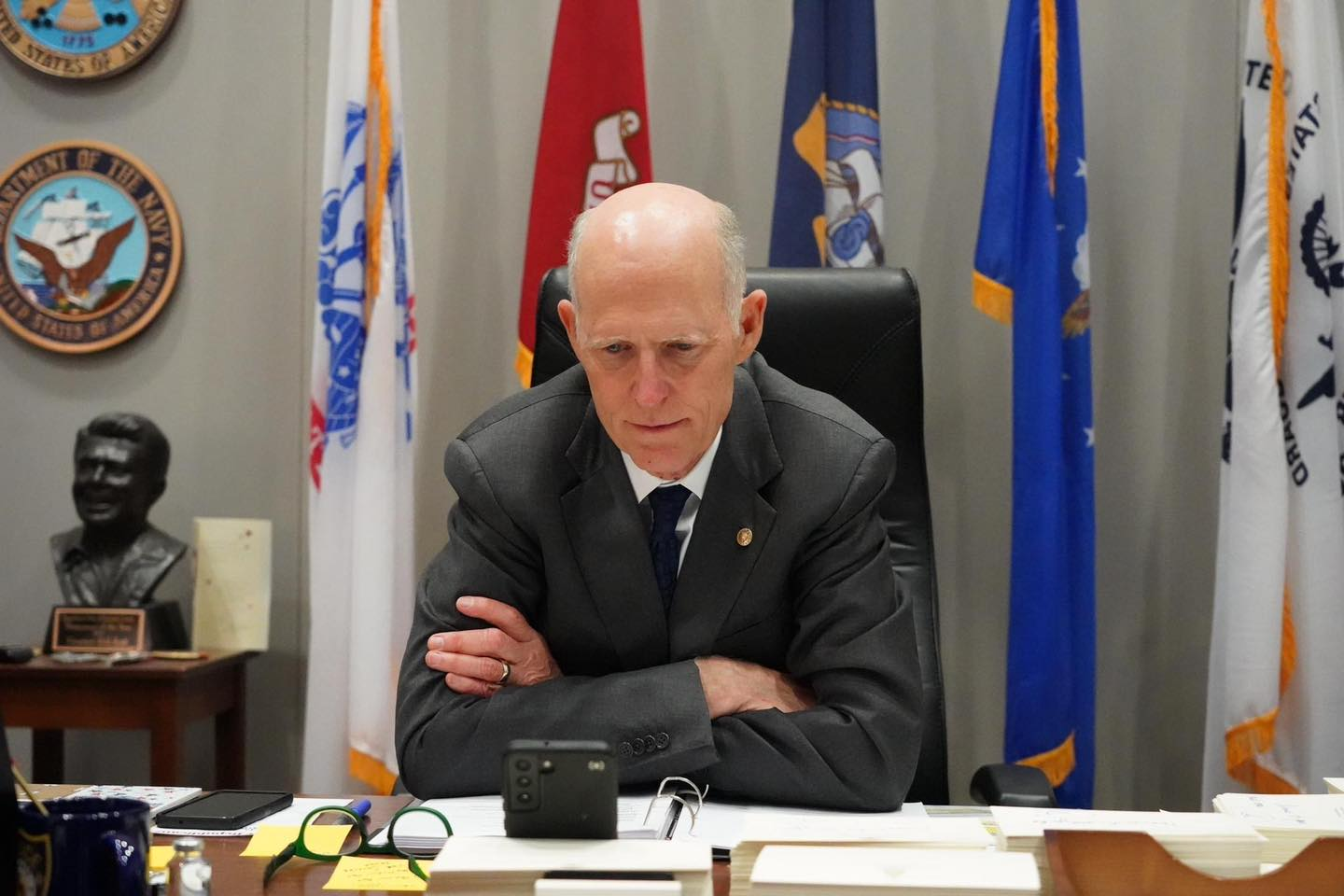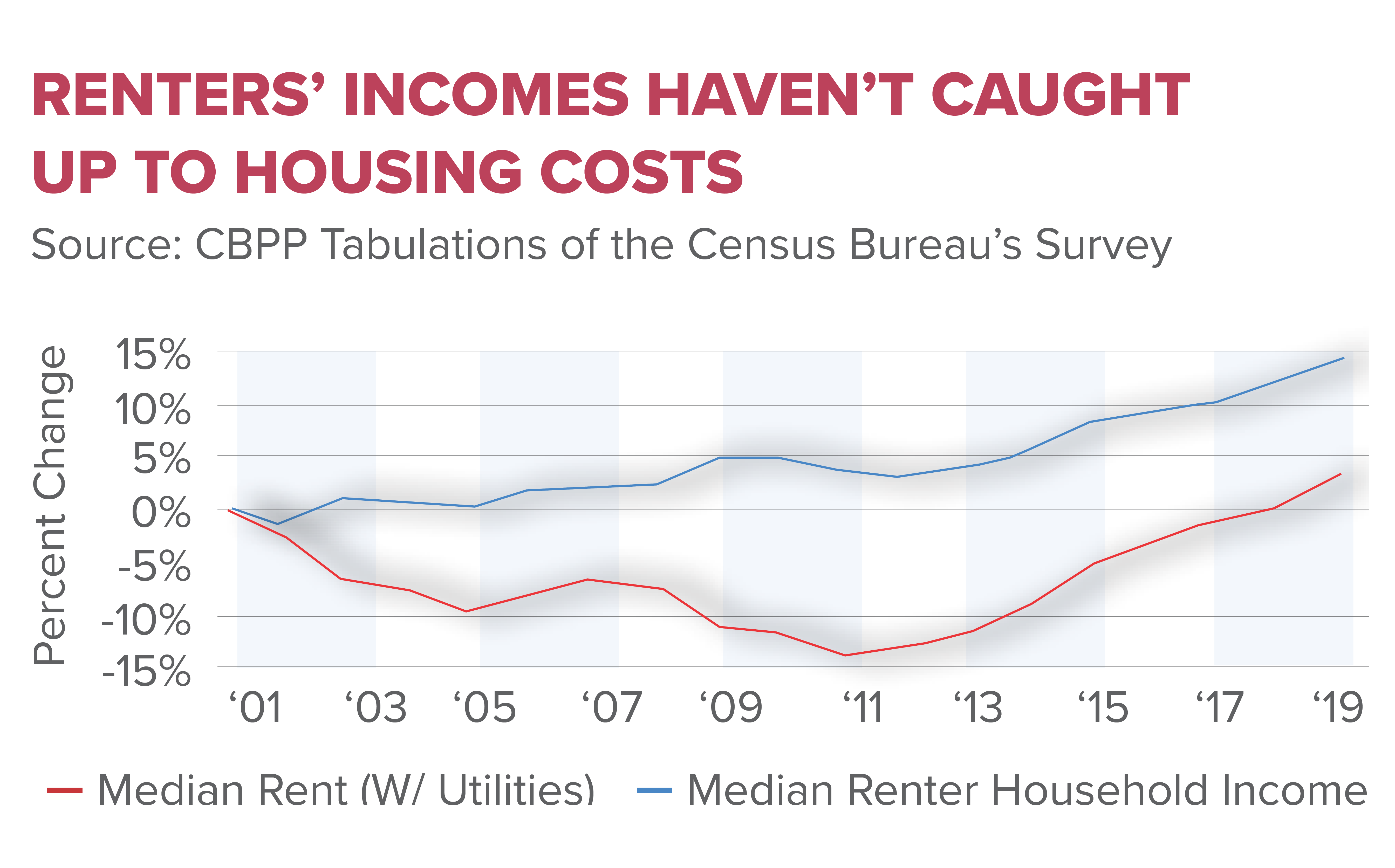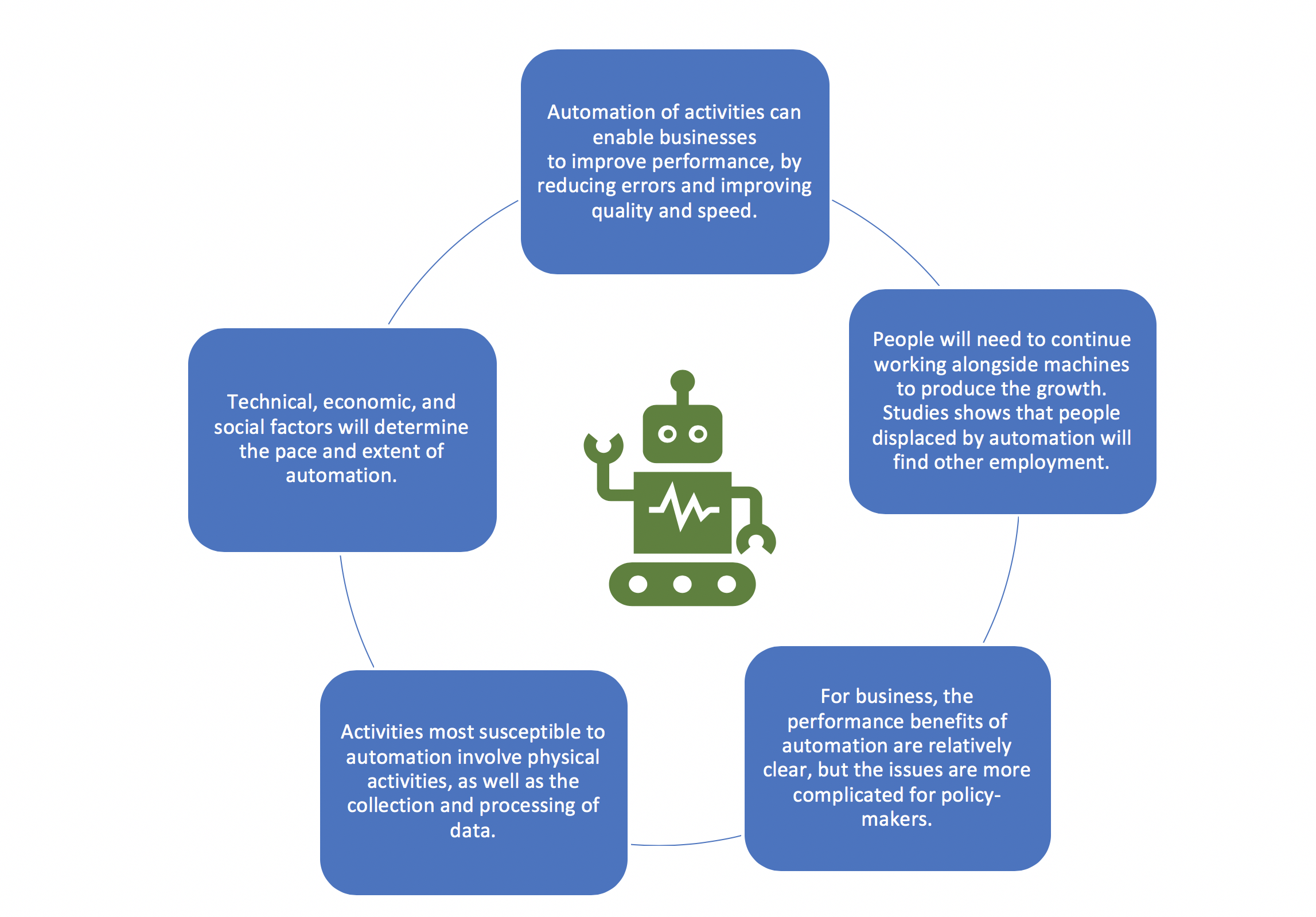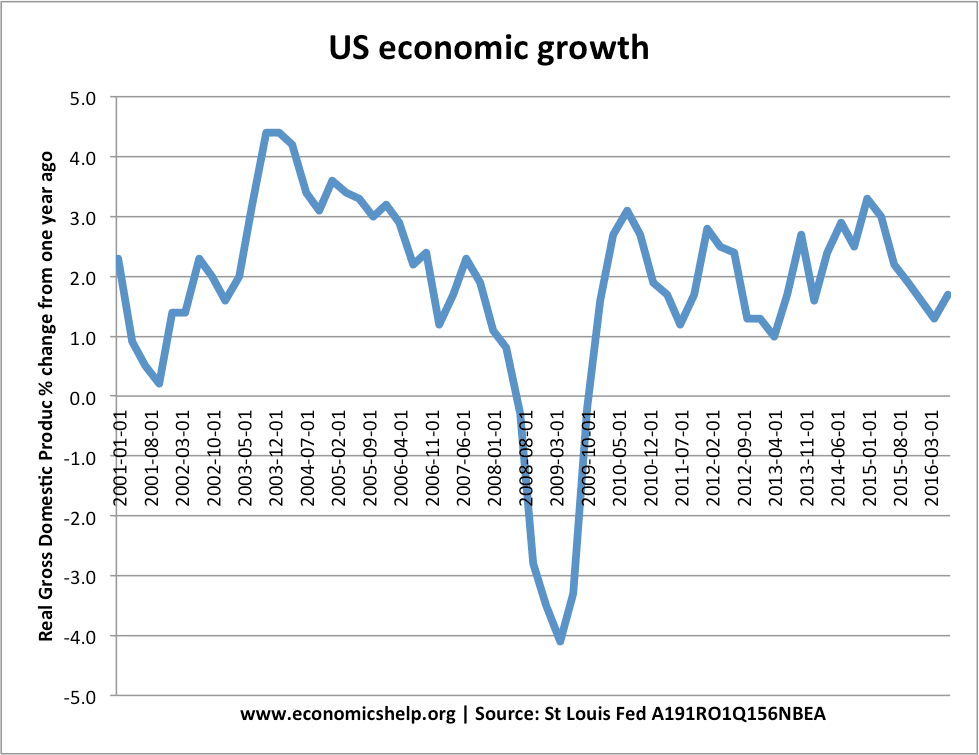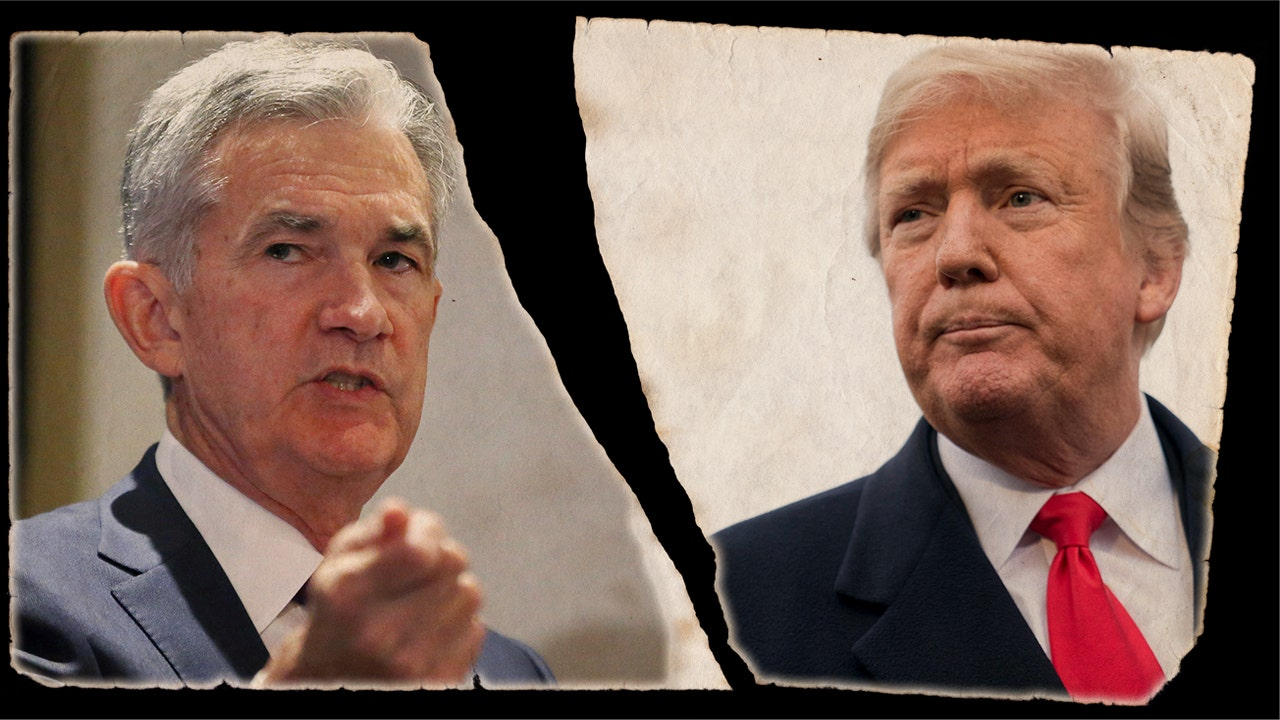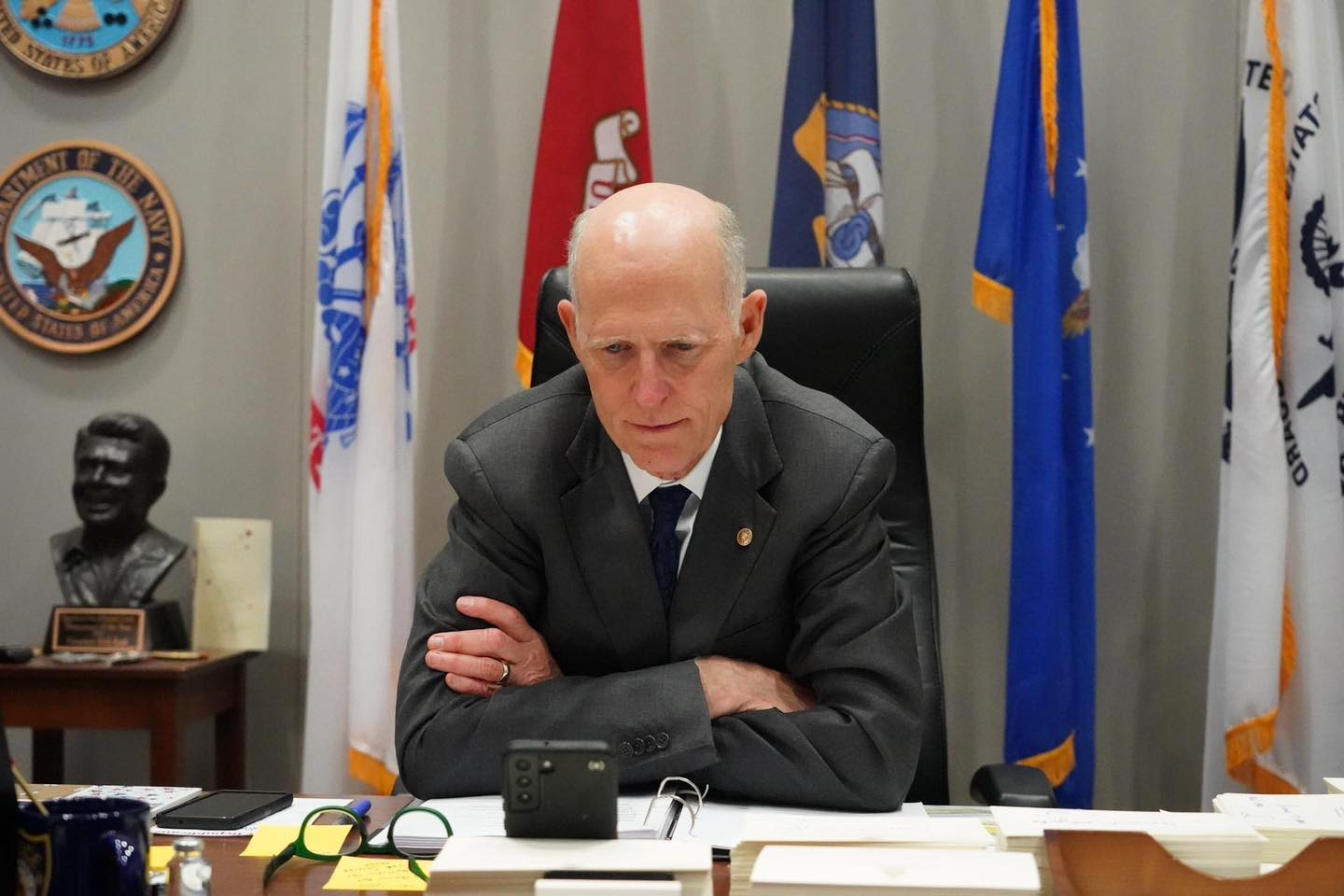Senator Rick Scott has emerged as a prominent voice advocating for tariffs as a means to bolster American workers and reshape U.S. trade policy. In recent discussions, he defended the Trump administration’s tariffs, arguing that they aim to level the playing field and encourage other nations to reduce their own trade barriers on American goods. Scott believes that these protective measures are essential, especially in the context of China trade relations, where he perceives a significant economic threat. Despite the skepticism expressed by some economists regarding tariffs’ impact on the economy, Scott maintains that they are ultimately beneficial for U.S. manufacturers and workers. By positioning tariffs as a strategic tool for enhancing American competitiveness, he seeks to ignite a discourse on the future of trade and economic policy in the United States.
The debate surrounding tariffs has gained considerable traction, particularly as lawmakers explore their implications on the American workforce and international commerce. Tariffs, which are taxes imposed on imported goods, have been utilized historically to protect domestic industries while influencing foreign trade dynamics. Recent developments in U.S. trade policy, especially under the backdrop of escalating tensions with nations like China, have led to a reevaluation of these protective measures. Proponents argue that such strategies can safeguard American workers, while critics fear they might destabilize the economy and provoke retaliatory measures from trading partners. The ongoing discussions about these tariffs underscore the complexities of balancing domestic interests with global economic interactions.
Understanding Rick Scott’s Perspective on Tariffs
Senator Rick Scott’s defense of tariffs stems from a desire to create a fairer competitive landscape for American workers. He argues that by imposing tariffs, the Trump administration aimed to motivate other nations to reduce their own trade barriers against U.S. exports. Scott contends that American businesses and workers should not be at a disadvantage when engaging in a global market that often favors foreign products. This sentiment reflects a broader understanding of tariffs as a tactical move in U.S. trade policy designed to level the playing field against nations like China, which he identifies as a significant economic threat.
Moreover, Scott believes that tariffs can enhance the sales potential of American-made goods. By reducing foreign tariffs, he argues, the U.S. can strengthen its manufacturing sector and create jobs for Americans. His approach highlights a proactive prioritization of domestic economic interests, suggesting that any trade policy should ultimately support American workers over foreign competitive practices. Such views emphasize the ongoing debate over the effectiveness and economic consequences of tariffs within a shifting landscape of international commerce.
The Economic Impact of Tariffs on the U.S. Economy
The implementation of tariffs has sparked discussions regarding their potential consequences for the U.S. economy. While Scott asserts that tariffs could boost American manufacturing and benefit workers, many economists raise concerns about their overall impact, especially regarding inflation and economic growth. For instance, the initial response from global stock markets indicated volatility and investor uncertainty following the unveiling of these tariffs, reflecting fears of trade wars and economic contraction. This perspective aligns with calls for a more nuanced approach to U.S. trade policy that balances the interests of American industries with the health of the economy as a whole.
Critics argue that the tariffs imposed by the Trump administration, particularly those targeting China, could lead to retaliatory measures that may negatively affect U.S. exports. The sharp increase in tariffs, with China facing a staggering 145 percent rate, not only escalates tensions but might also harm American firms reliant on trading with foreign markets. The discourse around tariffs underscores a significant concern: how to effectively navigate relationships with trading partners while safeguarding domestic interests without triggering inflation or a recession.
China Trade Relations in Light of Tariff Policies
Rick Scott’s strong stance against trade with China highlights a growing sentiment among some U.S. lawmakers regarding the perceived threat posed by China’s economic and political ambitions. He advocates for a robust response to deter any potential conflicts, suggesting that the best course of action may involve crippling the Chinese economy through aggressive tariffs. The implications of such policies extend beyond immediate economic concerns, as they touch upon national security and global stability. This perspective positions tariffs as not merely an economic tool but as part of a larger strategic framework in U.S.-China relations.
The contentious nature of trade relations with China raises questions about the long-term viability of such tariff-driven approaches. While Scott’s position resonates with certain domestic interests, it is crucial to assess the broader implications for American workers and businesses. The retaliatory tariffs imposed by China in response to U.S. trade policy can complicate market access for American products, potentially leading to job losses in industries that rely on exports. Thus, the challenge lies in formulating a trade policy that effectively addresses the concerns raised by U.S. lawmakers without destabilizing international relations or the American economy itself.
Balancing Tariffs and Inflation Concerns
The discussion surrounding tariffs inevitably raises the issue of inflation. Senator Scott has expressed uncertainty about how tariffs might influence inflation rates, which presents a critical area of concern for economists and policymakers alike. Historically, tariffs have had the potential to increase costs for consumers, leading to higher prices as businesses pass on their expenses. This linkage draws attention to the need for careful monitoring of economic indicators as tariffs are implemented.
Inflationary pressures can have cascading effects on the economy, impacting everything from consumer spending to interest rates. As Scott supports aggressive tariff strategies, it becomes essential to consider how these policies align with broader economic goals, such as achieving fiscal stability and promoting growth. Establishing a balanced budget, as Scott proposes, could be a necessary prerequisite if tariffs are to be effectively managed without exacerbating inflationary trends that could undermine American economic interests.
Trump Administration Tariffs: A Double-Edged Sword
The tariffs instituted under the Trump administration have sparked fervent debate among policymakers, economists, and industry leaders. On the one hand, supporters, including Senator Scott, argue that these measures protect American workers from unfair foreign competition and can revitalize the domestic manufacturing sector. By making it more expensive to import goods from countries like China, the expectation is that consumers will turn to American-made products, subsequently benefiting the U.S. economy.
However, the reality is often more complex. Many economists warn that such tariffs can backfire, resulting in increased prices for consumers, supply chain disruptions, and strained relationships with trading partners. The tariffs’ dual nature, praised as a means to foster economic growth while simultaneously criticized for their potential to inhibit trade, illustrates the challenges embedded in U.S. trade policy. The need for a balanced approach that considers both the benefits and potential costs of tariffs is paramount for shaping a sustainable economic future.
The Role of Tariffs in U.S. Trade Policy
The evolution of tariffs as a central element of U.S. trade policy can be traced back through history, repeatedly surfacing during periods of economic tension and uncertainty. Rick Scott’s endorsement of tariffs is part of a larger narrative regarding American efforts to redefine its stance in an increasingly competitive global marketplace. Tariffs are often positioned as necessary adjustments aimed at correcting trade imbalances and safeguarding domestic industries against the backdrop of globalization.
Moreover, U.S. trade policies, particularly those surrounding tariffs, must adapt to changing economic realities and foreign relations. As nations renegotiate trade agreements and adjust their own tariff structures, the U.S. must remain vigilant in assessing its own strategies to support American jobs while navigating the complexities of international commerce. This vigilance ensures that tariffs serve as a meaningful tool in fostering a prosperous economic environment for American workers.
Tariffs and Their Effect on American Workers
As the debate around tariffs progresses, one of the primary considerations remains their potential effect on American workers. Senator Scott emphasizes that the objective of tariffs is to empower U.S. workers and promote local industries by shielding them from global competition. In his view, by imposing tariffs, the government is not only aiming to protect jobs but also to encourage the production of more American goods, which could stimulate economic growth and job creation.
However, this protective stance raises questions about the trade-offs involved. While certain industries may benefit from tariffs, others could suffer from increased production costs and diminished market access abroad. American workers in sectors heavily dependent on imports or exports may face job insecurity if retaliatory measures are enacted by trading partners. Thus, striking a balance where tariffs can benefit the domestic workforce without causing broader economic harm is vital as the U.S. navigates these complex trade dynamics.
Evaluating Tariff Effects on Global Stock Markets
The introduction of tariffs under the guidance of the Trump administration has been linked to volatility within global stock markets. As Senator Scott defends these measures, concerns arise about how their implementation might lead to significant market fluctuations. Investors often react swiftly to tariff announcements, as evidenced by the sharp market corrections that can accompany such policy shifts, highlighting the fragile nature of economic confidence in a globalized economy.
Market dynamics intricately weave through the fabric of trade policies, with investor sentiment often being swayed by perceptions of uncertainty stemming from tariffs. The interplay between U.S. trade policy and global investment strategies becomes clear, as businesses assess the potential risks and rewards associated with operating within a highly tariffed environment. Therefore, careful consideration is essential in evaluating how tariff policies influence not only domestic welfare but also the broader economic landscape.
Future Directions for U.S. Tariff Policy
Looking forward, the future of U.S. tariff policy remains a subject of intense debate. As Senator Scott advocates for a continued emphasis on protective tariffs, it becomes crucial for policymakers to address the long-term implications of such strategies on the economy and international relations. Will tariffs continue to serve as a tool for economic leverage, or must there be a reevaluation towards a more collaborative approach in global trade?
The evolution of trade relationships, especially with nations like China, will dictate the trajectory of U.S. tariff policy. Key areas of focus, including achieving trade balance, protecting American jobs, and enhancing the nation’s economic competitiveness, will all shape the discourse surrounding tariffs. Moving forward, the challenge lies in finding innovative and effective strategies that foster growth without jeopardizing international partnerships or domestic economic stability.
Frequently Asked Questions
What are Rick Scott’s views on tariffs and their impact on the economy?
Rick Scott supports tariffs as a means to protect American workers and promote U.S. manufacturing. He believes that the Trump administration’s tariff strategy aims to level the playing field against other nations, especially concerning competitive pricing from China. Scott argues that these tariffs will ultimately benefit American workers by enabling them to sell more goods and mitigate disadvantages caused by foreign trade policies.
How do Rick Scott’s tariffs relate to U.S. trade policy with China?
Rick Scott’s tariffs are a critical component of U.S. trade policy aimed at addressing the economic competition posed by China. He views China as a significant threat and advocates for imposing higher tariffs on Chinese imports, believing this approach will lead to better trade conditions for American workers. Scott argues that reducing trade with China is necessary for national security and economic stability.
What is the impact of Rick Scott tariffs on American workers?
Senator Rick Scott believes that tariffs will positively impact American workers by reducing foreign competition and protecting jobs in the U.S. According to Scott, the focus of these tariffs is to ensure that American workers can sell their products freely without facing barriers imposed by other countries, which he argues will ultimately strengthen the U.S. economy.
How did the Trump administration’s tariffs affect the global economy according to Rick Scott?
Rick Scott defends the Trump administration’s tariffs, suggesting they are necessary to reshape U.S. trade policy and address trade imbalances. He contends that while the tariffs have caused some volatility in global markets, they will lead to fairer trade practices that benefit American manufacturers and workers in the long run.
What are the economic arguments against Rick Scott’s tariffs?
Critics, including economists like Jason Furman, argue that Rick Scott’s support for tariffs could harm the U.S. economy. They point to potential negative effects such as increased prices for consumers and retaliatory tariffs from other nations, particularly China, which could exacerbate economic downturns and lead to job losses in sectors reliant on international trade.
Will Rick Scott’s tariffs lead to inflation in the U.S.?
While Rick Scott has expressed uncertainty about whether his proposed tariffs will lead to inflation, he indicates that controlling inflation will require broader fiscal measures, including a balanced budget. Observers note that tariffs can increase costs for consumers, which may contribute to inflationary pressures.
How do tariffs fit into Rick Scott’s overall economic policy?
Rick Scott’s economic policy revolves around protecting American jobs and manufacturing through tariffs, which he sees as a tool to counteract unfair trade practices, especially from China. His stance includes advocating for reduced government spending and a balanced budget to foster a healthier economic environment alongside his tariff proposals.
What is the long-term vision of Rick Scott’s tariffs on U.S.-China trade relations?
Rick Scott’s long-term vision regarding tariffs on U.S.-China trade relations is to eliminate trade with China, as he believes this strategy will prevent potential conflict and protect American interests. He advocates that substantial tariffs aim to weaken China’s economic power, thus reducing the likelihood of confrontations between the two nations.
| Key Point | Details |
|---|---|
| Rick Scott’s Proposition on Tariffs | Scott supports tariffs as a method to support U.S. workers and insists they will level the playing field. |
| Impact on Trade Negotiations | Scott claims that American workers will benefit and advocates for lowering barriers and tariffs with other nations. |
| Criticism of China | Scott advocates for minimal trade with China, viewing their economic power as a major concern for the U.S. |
| Tariff Rates | The U.S. imposed a 10% tariff on most nations, while China faces a 145% tariff rate. |
| Economic Risks | Economic experts, including Jason Furman, believe that tariffs may negatively affect the U.S. economy. |
| Concerns over Inflation | Scott remains uncertain about the effects of tariffs on inflation, indicating a need for budget balancing instead. |
Summary
Rick Scott tariffs aim to modify international trade dynamics by imposing significant duties, especially on China, to shield American workers and manufacturers. Despite his belief that these tariffs will enhance the competitive position of U.S. goods in global markets, several economists warn that such measures could lead to broader economic instability and affect everyday consumers. Scott’s uncompromising stance on China reflects a strategic concern surrounding its economic strength and geopolitical ambitions, suggesting a tough approach to trade negotiations going forward.
